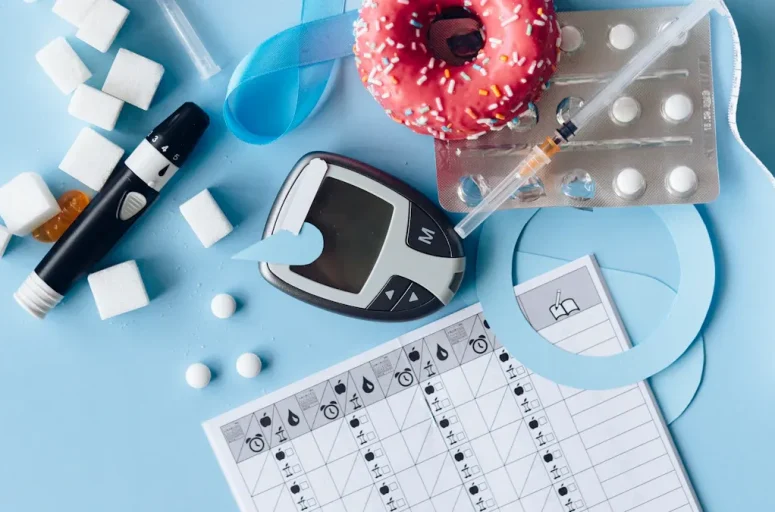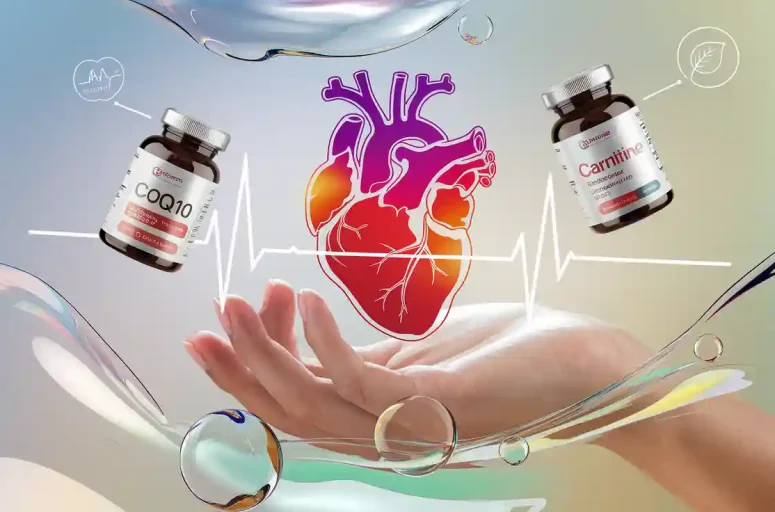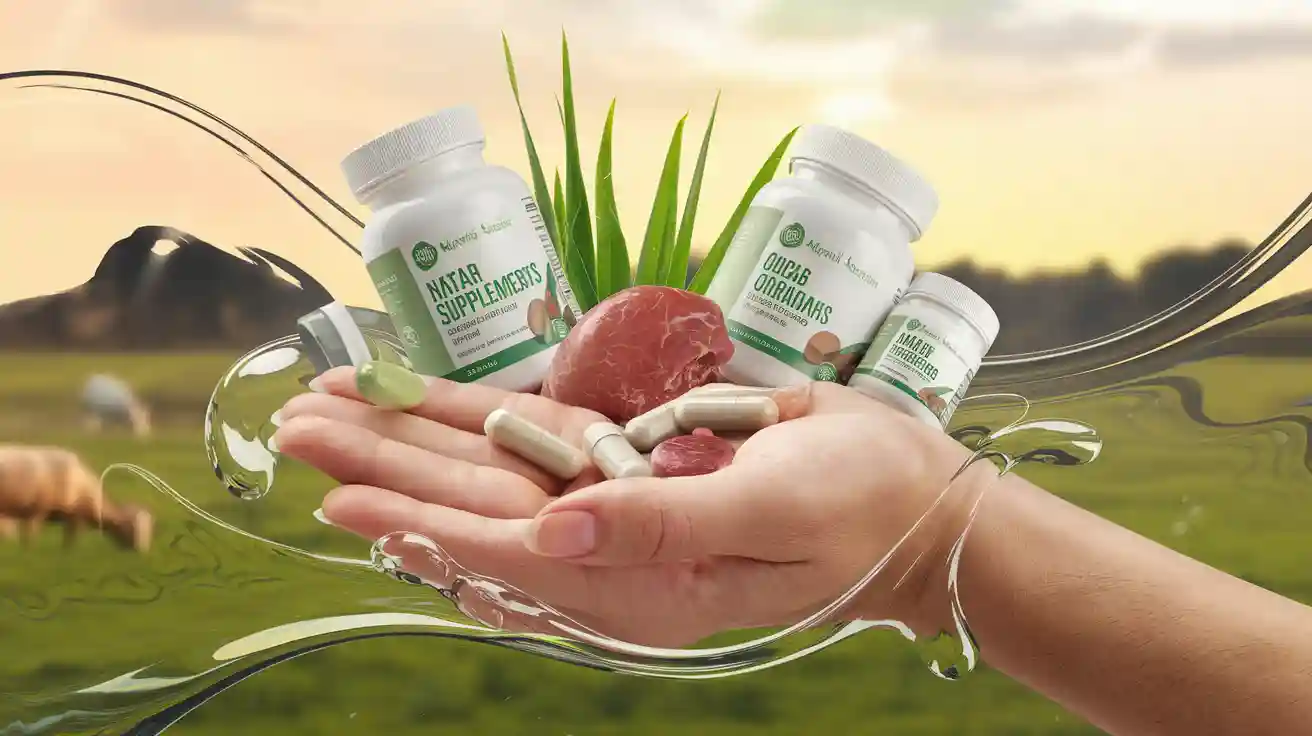
Grass-fed organ supplements have become a go-to choice for people who want a natural boost to whole-body wellness. You might wonder what makes these supplements stand out. Many believe that grass-fed organ supplements deliver concentrated nutrients you would find in traditional superfoods, supporting energy, immunity, and more. Today, sourcing matters as much as benefits—quality, purity, and how the animals are raised can make all the difference.
Metric | Value / Description |
|---|---|
Global organ supplements market size (2024) | USD 2.41 billion |
Projected market size (2033) | USD 4.48 billion |
Compound Annual Growth Rate (CAGR) | 7.2% (overall organ supplements market) |
North America market share (2024) | 38% (~USD 915 million) |
Key growth drivers | Preventive health, aging, fitness, and ancestral health trends |
This article is for educational purposes only. Please talk to your healthcare provider before starting new supplements or making health decisions.
Key Takeaways
Grass-fed organ supplements provide concentrated nutrients like B vitamins, vitamin A, and omega-3s that support energy, immunity, and overall health.
Freeze-drying preserves most nutrients in these supplements, making them potent and easy to take without fillers or additives.
Common organs used include liver, heart, kidney, pancreas, and spleen, each offering unique benefits for immune, heart, brain, and digestive health.
Choosing grass-fed supplements ensures higher purity, fewer toxins, and better animal welfare compared to conventional options.
Look for products with clear labels, third-party testing, and no artificial ingredients to ensure quality and safety.
Start with a low dose and increase slowly to avoid side effects; consult your healthcare provider if you have health conditions or take medications.
Grass-fed organ supplements offer a natural alternative to synthetic vitamins, delivering nutrients in a form your body can easily absorb.
Supplements provide convenience and consistent dosing, making it easier to enjoy organ benefits without cooking or strong tastes.
Grass-Fed Organ Supplements Overview
What Are Grass-Fed Organ Supplements
You might have heard about grass-fed organ supplements and wondered what sets them apart. These supplements come from the organs of grass-fed cattle, usually beef, raised on open pastures. Unlike conventional options, grass-fed beef organ supplements deliver a higher concentration of essential nutrients. You get more B vitamins, vitamin A, and omega-3 fatty acids, all in a form your body can easily absorb. Because the animals eat only grass, their organs contain fewer pesticides, mycotoxins, and heavy metals. This means you get a cleaner, more potent supplement.
Did you know? Grass-fed organ supplements are considered nutrient-dense powerhouses. They pack more vitamins and minerals per serving than most plant-based or synthetic options.
A quick look at the numbers shows just how much more you get from grass-fed sources:
Nutrient Category | Grass-Fed Organ Concentration Compared to Conventional | Key Details and Benefits |
|---|---|---|
B Vitamins (B3/Niacin, B5, B6) | Supports nervous, digestive, and skin health. | |
Vitamin A | Up to 459% higher (New Zealand grass-fed liver) | Essential for vision, immune function, and cellular health. |
Omega-3 Fatty Acids (EPA, DHA) | EPA ~10x higher, DHA 3x higher | Anti-inflammatory, supports heart and brain health. |
Toxin Burden | Lower in grass-fed organs | Reduced toxin exposure and better antioxidant capacity. |
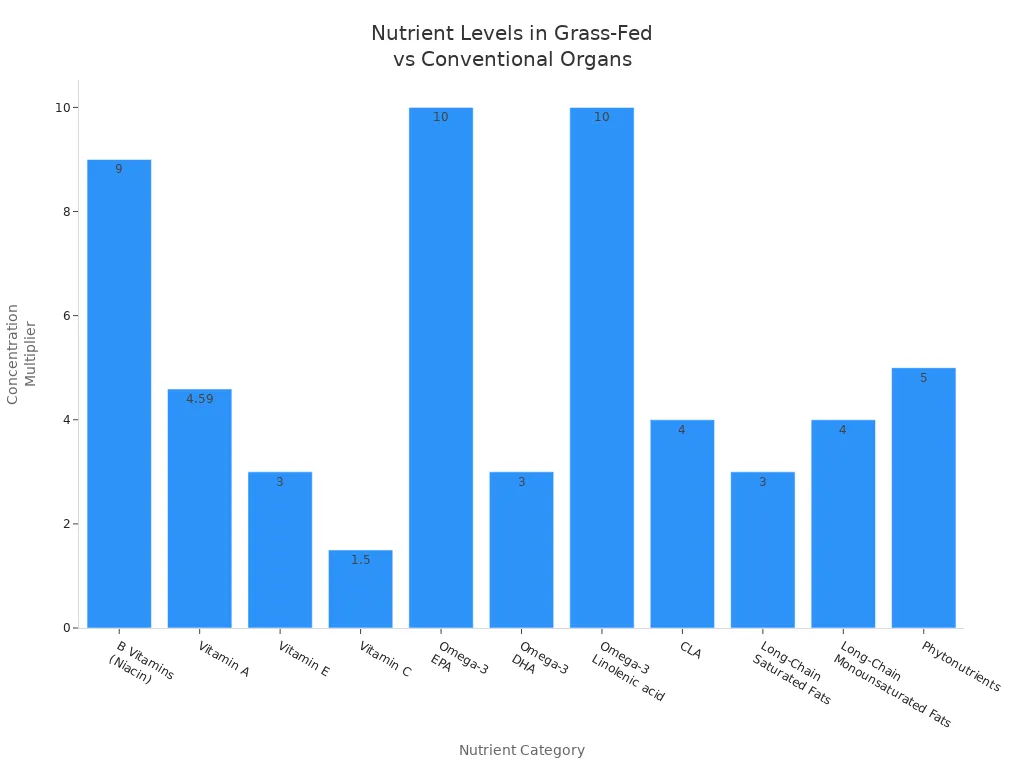
Common Organs Used
You’ll find several types of beef organs in these supplements. Each organ brings its own unique benefits.
Liver
Liver stands out as the most popular choice in beef organ supplements. It’s loaded with vitamin B12, vitamin A, riboflavin, folate, heme iron, copper, and choline. You support red blood cell formation, brain function, vision, and skin health when you add liver to your routine.
Heart
Heart offers a rich source of CoQ10, B vitamins, and amino acids. You get support for cardiovascular health and energy production. Heart also contains minerals that help your body function at its best.
Kidney
Kidney provides selenium, omega-3 fatty acids, and more B vitamins. You boost your immune system and antioxidant defenses with kidney supplements.
Pancreas
Pancreas supplies unique proteins and enzymes. These help your body digest food and support pancreatic health.
Spleen
Spleen contains peptides like tuftsin and splenopentin. These stimulate white blood cells and help your immune system stay strong.
Organ | Key Nutrients and Benefits |
|---|---|
Liver | Extremely nutrient-dense; high in vitamins A, B2, B3, B5, B6, B9, B12; rich in iron, phosphorus, zinc, copper, selenium, and choline. Provides over 1100% RDA of B vitamins in 4 oz. |
Heart | Rich in CoQ10 (supports cardiovascular health), vitamins A, B12, folate; minerals iron, selenium, phosphorus, zinc, copper; amino acids glycine and proline important for connective tissue and joint health. |
Kidney | Excellent source of selenium (immune support and antioxidant), B vitamins (A, B2, B3, B5, B6, B9, B12), phosphorus, zinc, iron, copper, and omega-3 fatty acids. |
Pancreas | Contains unique proteins and digestive enzymes that support pancreatic and digestive health. |
Spleen | Contains immune-boosting peptides (tuftsin, splenopentin) and proteins that stimulate white blood cell activity and support immune function. |
How They’re Made
You might wonder how beef organ supplements keep their nutrients so fresh. The answer is freeze-drying. This gentle process removes moisture at low temperatures, so heat-sensitive vitamins and enzymes stay intact. Freeze-dried grass-fed beef organ supplements retain over 90% of vitamin C and at least 95% of fat-soluble vitamins like A, D, E, and K. In contrast, heat drying can destroy up to 80% of these nutrients.
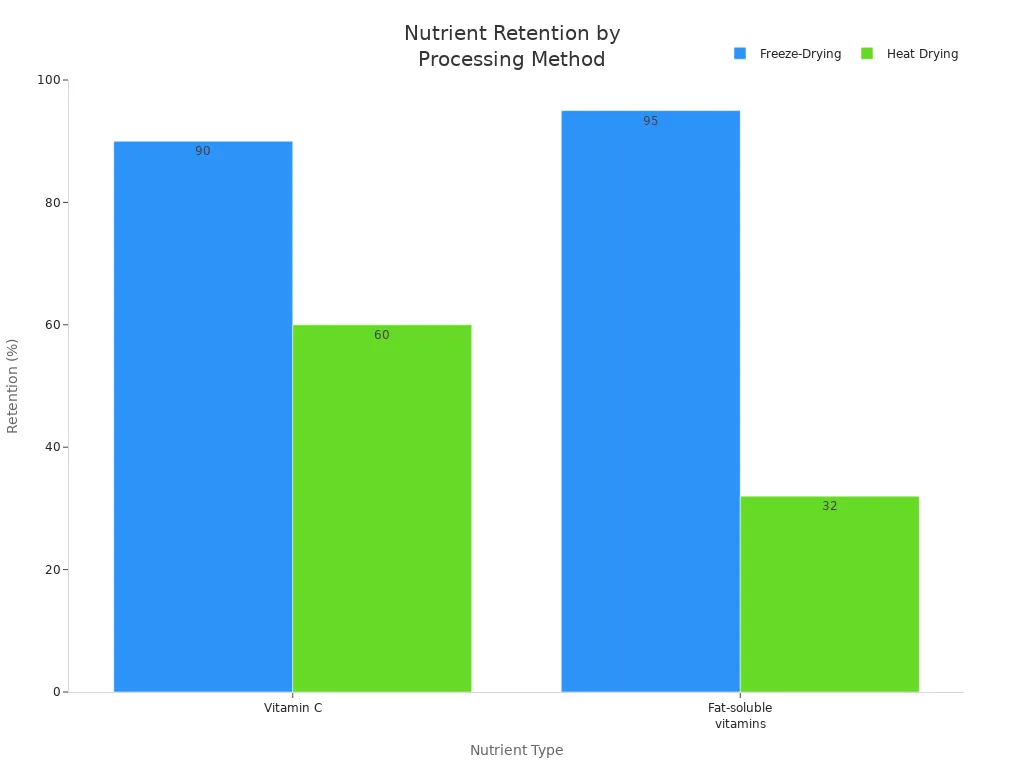
You get a supplement that’s easy to take, potent, and free from fillers or additives. Most high-quality grass-fed organ supplements come from New Zealand cattle, known for their clean environment and strict animal welfare standards.
Medical Disclaimer: This information is for educational purposes only and does not constitute medical advice. Always consult a healthcare professional before starting new supplements or making health-related decisions.
Health Benefits
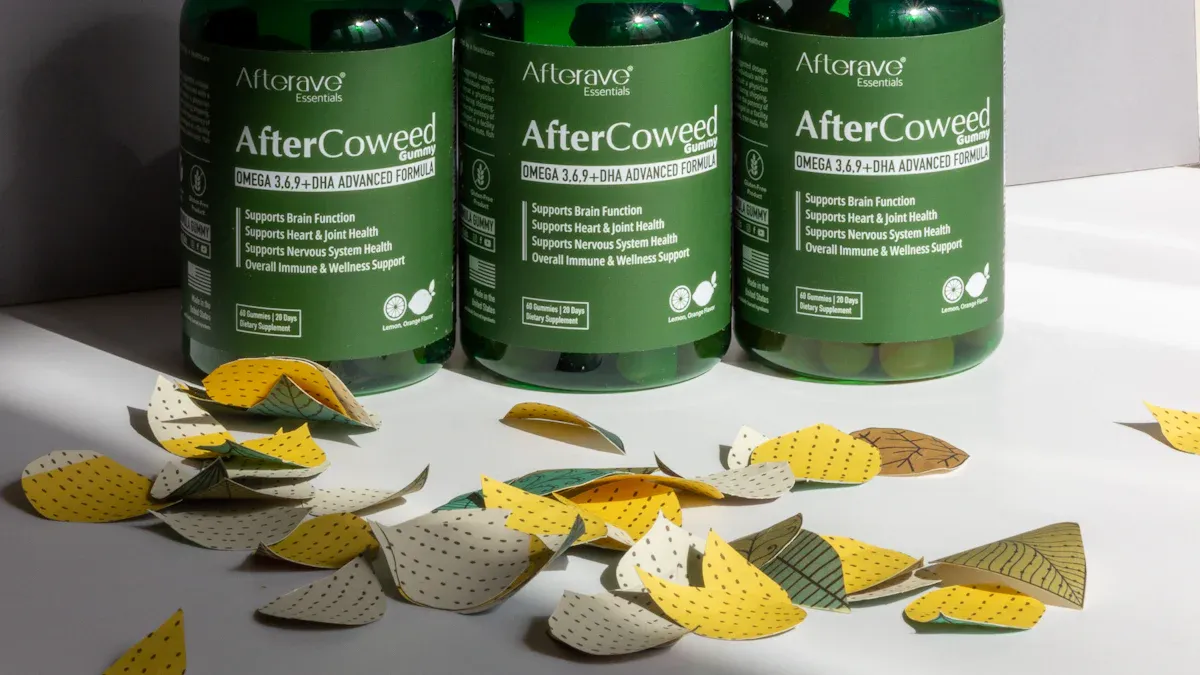
Immune Support
You want your body to fight off germs and stay strong all year. Grass-fed organ supplements can help you nourish your immune system in a natural way. These supplements are packed with bioavailable vitamin a, zinc, selenium, and copper. These nutrients support immune function by helping your body make white blood cells and antibodies. When you get enough of these nutrients, your body can respond faster to threats.
Liver and spleen are two organs that stand out for immune support. Liver provides antioxidants like vitamin A and selenium, which protect your cells from damage. Spleen contains special peptides that stimulate your immune system and promote better hormonal balance. If you want to support immune function and promote overall health, adding these organ supplements to your routine can make a difference.
Tip: Choosing grass-fed organ supplements means you get cleaner nutrients that provide antioxidants and promote immune and hormonal health.
Energy and Metabolism
Do you ever feel tired or sluggish? Your body needs the right nutrients to turn food into energy. Grass-fed organ supplements support energy production and heart health by delivering a powerful mix of B vitamins, iron, choline, and trace minerals. These nutrients work together to help your cells release energy and keep your metabolism running smoothly.
Here’s how these supplements boost your energy and metabolism:
B vitamins (especially B12 and B6) help your body make red blood cells and break down carbs, fats, and proteins.
Choline supports brain function and helps your body use fat for fuel.
Zinc and vitamin C boost your immune system and keep your metabolism healthy.
Essential amino acids, including BCAAs, help your muscles recover and grow.
Antioxidants like selenium and vitamin E protect your cells from damage.
Glycine from beef liver supports gut health, which helps your body absorb nutrients better.
Biotin helps your body turn food into energy.
Trace minerals like copper, zinc, and manganese act as helpers for enzymes that control energy metabolism.
Grass-fed organ supplements, especially liver, are rich in iron, zinc, copper, and B vitamins. These nutrients are easy for your body to absorb and use. You also get fat-soluble vitamins A, D, E, and K2, which support metabolic health. CoQ10 from beef heart is another key nutrient that helps your cells make energy. Selenium from kidney supports your thyroid, which controls how fast your body burns energy.
When you choose grass-fed organ supplements, you give your body the tools it needs for better energy, a healthy metabolism, and improved overall health.
Heart Health
Your heart works hard every day. You can help it stay strong with the right nutrients. Grass-fed organ supplements, especially those made from beef heart, liver, and kidney, are rich in CoQ10 and omega-3 fatty acids. CoQ10 gives your heart cells the energy they need and protects them from damage. As you get older, your body makes less CoQ10, so getting it from supplements can help.
Omega-3 fatty acids from beef kidney reduce inflammation and support cardiovascular function. These nutrients work together to keep your heart healthy and your blood flowing smoothly. Grass-fed organ supplements also provide iron, B vitamins, and other minerals that help your heart pump efficiently.
If you want to support your heart and overall health, adding grass-fed organ supplements to your daily routine is a smart move.
Brain and Cognitive Function
You want your mind to stay sharp and your memory strong. Grass-fed organ supplements can help you support brain health in a natural way. These organ blends, especially those with liver and heart, give you choline, vitamin B12, copper, and CoQ10. Choline acts as a building block for acetylcholine, a neurotransmitter that helps you learn and remember things. When you get enough choline, you may notice better focus and mental clarity.
Vitamin B12 keeps your nervous system firing and supports your mood. If you feel foggy or forgetful, you might need more B12 in your diet. Copper also plays a role in brain function and helps protect your nerves. Beef heart contains CoQ10, which supports energy production in your brain cells and acts as an antioxidant. This means your brain gets more power and protection from stress.
Some grass-fed organ supplements even include beef brain. This organ contains special compounds like BDNF and sphingolipids. These nutrients help your brain grow new connections and protect against age-related decline. Many people believe that eating organ meats can support the same organ in your body. While research continues, you can feel confident that these nutrients work together to support your mood, memory, and overall brain health.
Tip: If you want to boost your focus, memory, and mood, look for supplements with grass-fed liver, heart, and even brain for a full spectrum of brain-supporting nutrients.
Skin, Hair, and Nails
You want glowing skin, strong nails, and healthy hair. Grass-fed organ supplements can help you reach these goals. These organ blends are packed with nutrients that support your body from the inside out.
Here’s what you get:
Vitamin A helps your skin stay clear and hydrated. It also supports cell turnover, which keeps your complexion fresh.
Copper boosts collagen production. Collagen gives your skin strength and keeps it firm. Copper also helps your hair keep its natural color.
Vitamin B12 and folate support healthy cell growth. They help your body repair skin and grow strong nails and hair.
Heme iron helps your blood carry oxygen. This keeps your skin looking bright and your hair healthy.
Choline supports your metabolism and helps your body use nutrients for tissue repair.
CoQ10 protects your skin from aging and supports energy in your skin cells.
Omega-3 fatty acids nourish your skin and reduce inflammation.
Hyaluronic acid and glycosaminoglycans keep your skin hydrated and elastic.
Peptides and growth factors from organ meats help repair tissues and slow signs of aging.
Nutrient | Benefit for Skin, Hair, and Nails |
|---|---|
Vitamin A | Hydrates skin, supports cell turnover |
Copper | Boosts collagen, improves hair pigment |
Vitamin B12, Folate | Supports cell growth, repairs skin |
Heme Iron | Oxygenates skin, strengthens hair |
Choline | Supports metabolism, tissue repair |
CoQ10 | Protects from aging, boosts energy |
Omega-3s | Nourishes, reduces inflammation |
Hyaluronic Acid | Hydrates, improves elasticity |
Peptides | Repairs tissue, slows aging |
When you add these organ supplements to your routine, you give your body the building blocks it needs for healthy skin, shiny hair, and strong nails. You may notice your complexion looks brighter and your hair feels thicker.
Digestive Health
You want your gut to work smoothly and help you feel your best. Grass-fed organ supplements can support your digestive system in several ways. These supplements often include liver, pancreas, kidney, heart, and spleen. Each organ brings unique nutrients and enzymes that help your body break down food and absorb nutrients.
The pancreas in these blends provides natural enzymes. These enzymes help you digest proteins, fats, and carbs. When your digestion works well, you feel less bloated and have more energy. The liver supports detoxification and helps your body process nutrients. Kidney and spleen add extra minerals and support your immune system, which also plays a role in gut health.
Organ meats are nutrient-dense. They give you proteins, vitamins, and minerals that help your gut lining stay strong. A healthy gut lining keeps out harmful substances and lets in the good stuff. You may notice better digestion, more regularity, and improved overall health when you use these supplements.
Note: If you have digestive issues, adding grass-fed organ supplements may help your body get the nutrients and enzymes it needs for better gut health.
Medical Disclaimer: This information is for educational purposes only and does not constitute medical advice. Always consult a healthcare professional before starting new supplements or making health-related decisions.
Grass-Fed vs. Conventional Organ Supplements
Nutrient Differences
When you compare grass-fed and conventional beef organ supplements, you notice some big differences in nutrition. Grass-fed organs come from cattle that eat only grass and roam on open pastures. This natural diet gives their organs a better nutrient profile.
You get more omega-3 fatty acids in grass-fed beef organ supplements. These healthy fats help your body manage inflammation and support your heart and brain.
The omega-3 to omega-6 ratio is much better in grass-fed beef. A lower ratio means less inflammation and better overall health.
Grass-fed organs have more conjugated linoleic acid (CLA), which helps your metabolism and immune system.
You find higher levels of fat-soluble vitamins like A, D, E, and especially K2. These vitamins support your vision, bones, immune system, and hormone balance.
Grass-fed beef organ supplements also have more antioxidants, such as glutathione and superoxide dismutase, which protect your cells from damage.
Nutrient | Grass-Fed Organs | Conventional Organs |
|---|---|---|
Omega-3 Fatty Acids | Higher | Lower |
Omega-6:Omega-3 Ratio | Lower (healthier) | Higher |
CLA | Higher | Lower |
Vitamins A, D, E, K2 | Higher | Lower |
Antioxidants | Higher | Lower |
You get a cleaner, more nutrient-dense supplement when you choose grass-fed beef organ supplements.
Purity and Safety
You want to know what goes into your supplements. Grass-fed beef organ supplements stand out for their purity. Companies that make these supplements focus on clean ingredients. They avoid artificial additives, preservatives, and synthetic compounds. Many brands use third-party testing to make sure their products are safe and pure.
You also see more transparency with grass-fed supplements. Brands often share where they source their beef and how they process the organs. This openness builds trust and helps you feel confident about what you are taking. Leading companies in the grass-fed market, like Ancestral Supplements and Perfect Supplements, set high standards for quality and safety.
Grass-fed beef organ supplements come from cattle raised without antibiotics or hormones. This means you get a product with fewer contaminants and a lower risk of unwanted residues. You support your health with a supplement that is both natural and safe.
Animal Welfare
Animal welfare matters to many people who choose grass-fed beef organ supplements. Grass-fed cattle live on open pastures and eat a natural diet of grass. They can move freely and show natural behaviors, which keeps them healthier and less stressed.
Grass-fed cattle do not need as many antibiotics or hormones because their living conditions are better.
Pasture-raised cattle have less stress than those kept in crowded feedlots.
Conventional beef often comes from cattle raised in confined spaces and fed grain-based diets. These animals may get antibiotics and growth promotants to speed up growth.
Grass-fed systems focus on animal welfare, natural living, and minimal pharmaceutical use.
When you pick grass-fed beef organ supplements, you support farming practices that are better for the animals and the environment.
Medical Disclaimer: This information is for educational purposes only and does not replace medical advice. Please talk to your healthcare provider before starting any new supplement or making health decisions.
Beef Organ Supplements vs. Whole Organ Meats
Nutrient Absorption
You might wonder if your body absorbs nutrients differently from supplements compared to whole organ meats. Both options offer highly bioavailable vitamins and minerals. When you eat whole organ meats, you get nutrients in their natural form, just as your ancestors did. Your body recognizes these nutrients and absorbs them well.
Beef organ supplements use gentle freeze-drying methods to lock in nutrients. This process keeps most vitamins, minerals, and enzymes intact. You still get a rich source of vitamin A, B vitamins, iron, and other key nutrients. Many people find that supplements provide a consistent dose, which helps you meet your daily needs. If you have trouble digesting whole organ meats, supplements can be easier on your stomach.
Convenience
Let’s face it—preparing organ meats can be a challenge. You need to buy, store, and cook them before you eat. Raw frozen organs have a short shelf life and require careful handling. Not everyone has the time or desire to cook these foods.
Supplements make things much easier. Here’s why so many people choose them:
You can mix powders into smoothies, oatmeal, or yogurt.
Capsules are easy to swallow and mess-free.
Supplements fit busy lifestyles and travel well.
You avoid the taste and texture of organ meats.
Consistent packaging helps you get the same nutrients every day.
If you want the benefits of organ meats without the hassle, supplements are a smart choice.
Taste and Accessibility
Taste can be a big barrier. Many people find the flavor and texture of organ meats strong or unfamiliar. You might struggle to eat liver or kidney, even if you know they are healthy. Some people also have dietary restrictions or live in areas where fresh organ meats are hard to find.
Supplements solve these problems. You get all the nutrients without the taste. Capsules and powders are nearly flavorless. You can take them anytime, anywhere. This makes beef organ supplements accessible for almost everyone, including picky eaters and those with busy schedules.
Note: This information is for educational purposes only. It does not replace medical advice. Please talk to your healthcare provider before starting new supplements or making health decisions.
Sourcing High-Quality Beef Organ Supplements
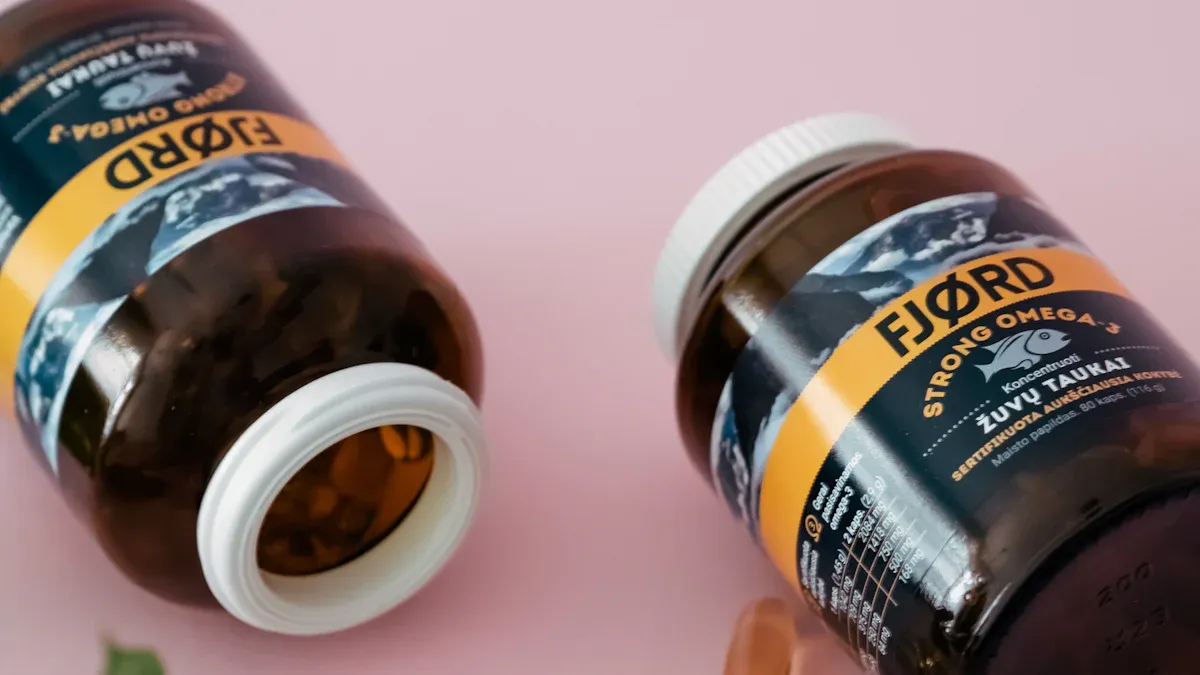
What to Look For
Choosing high-quality beef organ supplements can feel overwhelming, but you can make it simple by focusing on a few key factors. When you want the best for your health, you need to pay attention to how the supplements are made and where they come from. Here’s what you should look for:
Products labeled as 100% grass-fed and finished. This means the cattle ate grass their entire lives, which boosts nutrient density.
Supplements with organic or Non-GMO certifications. These labels help you avoid antibiotics, synthetic hormones, genetically modified feed, and pesticides.
Freeze-dried processing. This gentle method keeps heat-sensitive nutrients like vitamins and enzymes intact.
Single source origin. When a product comes from one farm or country, you get better traceability and consistent quality.
No fillers or additives. Pure supplements reduce allergen risks and keep the potency high.
Third-party lab testing. Look for brands that test for purity, potency, and contaminants like heavy metals and pathogens.
Long-term value. Consider nutrient density, organ variety, and cost per serving.
Real user feedback. Check reviews and community recommendations to see how the product works for others.
You want supplements sourced from grass-fed cows that live on open pastures. This ensures you get the cleanest and most nutritious product possible.
Tip: Always check the ingredient list. If you see anything besides freeze-dried organs, think twice before buying.
Labels and Certifications
Labels and certifications help you spot the best grass-fed beef organ supplements. They show you which brands care about quality and safety. Here are the most important ones to look for:
100% grass-fed, pasture-raised, and pesticide-free. These labels mean the organs come from healthy, well-cared-for animals.
Freeze-dried processing. This method preserves more nutrients than high-heat drying.
Third-party testing. Brands should test for heavy metals, glyphosate, and other contaminants. Certificates of Analysis (COAs) or test reports should be available.
No additional ingredients or fillers. Pure products give you the most benefits.
Manufactured in GMP and FDA-certified facilities. These certifications lower the risk of expired or low-quality ingredients.
USDA Organic certification. This guarantees no antibiotics, synthetic hormones, or genetically modified feed.
Non-GMO Project Verified seal. This confirms the cattle never ate genetically engineered feed.
Single source origin. This improves traceability and reduces contamination risk.
Avoid unusually cheap products. Low prices can signal poor quality or expired ingredients.
When you see these labels and certifications, you know you’re getting a supplement made with care and attention to detail.
Questions for Brands
You deserve to know exactly what you’re putting in your body. Don’t be afraid to ask brands questions before you buy. Here are some smart questions to help you find the best high-quality beef organ supplements:
Are your supplements made from cattle that are 100% grass-fed and finished? This ensures the animals ate grass their entire lives for higher nutrient quality.
Is your product sourced from a single origin, like one farm or one country? This helps with traceability and reduces contamination risk.
Do you provide third-party lab testing results, including Certificates of Analysis (COAs)? These confirm the absence of heavy metals, pathogens, pesticides, and other contaminants.
Does your supplement contain any fillers or additives, or is it just freeze-dried organs?
Can you share information about the farm or country of origin, animal diet, living conditions, and farming practices?
Do you openly share lab test summaries or COAs on your website or upon request?
What processing method do you use? Is it freeze-drying to preserve nutrients?
When brands answer these questions clearly, you can trust their transparency and commitment to quality. You want to feel confident that your supplements come from grass-fed cows raised with care.
Note: Always choose brands that value transparency. If a company avoids your questions or hides information, consider it a red flag.
Medical Disclaimer: This information is for educational purposes only and does not constitute medical advice. Please consult a healthcare professional before making health-related decisions or starting new supplements.
Red Flags
When you shop for beef organ supplements, you want to avoid products that could harm your health or waste your money. Some warning signs can help you spot low-quality or unsafe options before you buy. Here’s what you should watch out for:
No Third-Party Testing or Certifications
If a company doesn’t provide third-party lab results or certifications, you can’t be sure what’s really in the bottle. Reliable brands test for heavy metals, pathogens, and nutrient content. The U.S. Pharmacopeia points out that without this testing, supplements may have inconsistent potency or even dangerous contaminants.Unclear or Minimal Contact Information
Trustworthy companies make it easy for you to reach them. If you can’t find a phone number, email, or physical address, that’s a red flag. Companies that hide their contact details often avoid accountability and may not answer your questions about sourcing or safety.No Expiration Date
Always check for a clear expiration date on the packaging. Supplements without this information might be old or unsafe to use. Freshness matters for potency and safety.Artificial Preservatives, Dyes, or Sweeteners
Scan the ingredient list for additives like sucralose, aspartame, ace-K, or artificial colors. These ingredients lower the quality of the supplement and may cause unwanted side effects.Anecdotal Influencer Marketing
Be cautious if a product relies mostly on influencer stories or testimonials instead of scientific research. The American Journal of Clinical Nutrition warns that this kind of marketing can spread hype without real evidence of safety or effectiveness.Misleading Serving Sizes and Nutrient Claims
Some brands exaggerate the benefits by comparing tiny capsule doses to large servings of whole organ meats. Always check how much actual organ material you get per serving.Very Low Price
High-quality grass-fed organ supplements cost more because of better sourcing, processing, and testing. If a price seems too good to be true, it probably is. Cheap products may cut corners on quality or safety.No Information on Sourcing or Processing
If a company won’t tell you where the organs come from or how they process them, you should be skeptical. Lack of transparency often means lower standards.Hormone Contamination or Unlisted Ingredients
The FDA has warned about supplements containing hidden hormones, which can disrupt your body’s balance and cause serious health issues. Always choose brands that disclose all ingredients and provide lab results.Heavy Metal or Environmental Contaminant Risk
Organs can accumulate toxins like cadmium and lead, especially if sourced from animals raised in polluted environments. Only buy from brands that source from pasture-raised, tested animals.Vitamin and Mineral Overload
Organs like liver are packed with vitamin A and iron. Taking too much can lead to toxicity, especially if you use multiple supplements. The NIH warns that chronic excess vitamin A can cause liver damage, bone loss, and birth defects during pregnancy.
Here’s a quick table to help you spot red flags at a glance:
Red Flag | Why It Matters |
|---|---|
No third-party testing | Risk of contamination or inaccurate labeling |
No expiration date | Product may be expired or unsafe |
Artificial preservatives/sweeteners | Indicates lower quality and possible side effects |
Unclear sourcing or contact info | Hard to verify safety and quality |
Hidden or unlisted ingredients | Potential for hormone contamination or allergens |
Overhyped influencer marketing | Lacks scientific support for claims |
Very low price | May signal poor quality or expired ingredients |
Misleading serving size claims | Overstates nutrient benefits |
Tip: Always research the brand, read ingredient lists, and ask for lab results before you buy. Your health is worth the extra effort.
Medical Disclaimer: This information is for educational purposes only and does not constitute medical advice. Please consult a healthcare professional before making health-related decisions or starting new supplements.
Safety and Dosage
Safe Use
You want to get the most out of grass-fed organ supplements while keeping things safe. Most brands suggest a daily serving of about 3,000 mg. This amount gives you nutrients similar to eating organ meat once a week. There are no official clinical guidelines, so you should follow the product instructions and listen to your body.
Start with a low dose. Let your body adjust before you increase the amount. You might notice mild symptoms like headaches or stomach upset at first. Drink plenty of water, get enough sleep, and avoid processed foods during this period. If you feel uncomfortable, lower your dose and wait a week before trying to increase it again. Using a pill organizer can help you keep track of your intake.
Here are some tips for safe use:
Begin with a small dose and increase slowly.
Take supplements with meals to reduce stomach discomfort.
Stay hydrated and rest well.
Watch for any unusual symptoms.
If you feel unwell, lower your dose or stop taking the supplement.
Track your intake to avoid taking too much.
Remember, organ supplements are real food, not synthetic pills, but some people may still react.
The adjustment period can last a few days or even a few weeks. Everyone’s body is different, so pay attention to how you feel.
Who Should Avoid
Grass-fed organ supplements are not right for everyone. Some people need to be extra careful or avoid them altogether. You should talk to your doctor if you have any health concerns.
People who should avoid or consult a healthcare provider include:
Pregnant women, because too much vitamin A can cause birth defects.
Individuals with gout, since organ supplements contain purines that raise uric acid levels.
Those with hemochromatosis or iron overload, as these supplements can worsen iron accumulation.
People with histamine intolerance, especially with kidney or spleen supplements.
Anyone with autoimmune diseases or taking immunosuppressants.
Nursing mothers or those with chronic health conditions.
If you fall into any of these groups, get advice from a healthcare professional before starting organ supplements.
Side Effects
Most people tolerate grass-fed organ supplements well, but you might experience some side effects. The most common issues include digestive upset, such as nausea or stomach discomfort. Taking supplements with food can help reduce these problems.
Other possible side effects:
Headaches, joint pain, or nausea from too much vitamin A, especially with liver supplements.
Risk of iron overload if you already have high iron levels.
Allergic reactions or digestive irritation from fillers or additives in low-quality products.
Contamination with heavy metals or toxins if the source animals lived in polluted environments.
Unknown long-term effects, since there are no large studies on daily high-dose use.
Supplements should not replace a balanced diet. You need a variety of foods for good health. If you notice any side effects, stop taking the supplement and talk to your doctor.
Medical Disclaimer: This information is for educational purposes only and does not constitute medical advice. Always consult a healthcare professional before making health-related decisions or starting new supplements.
Medication Interactions
When you start taking grass-fed organ supplements, you might not think about how they could interact with your medications. But these supplements pack a punch with nutrients like vitamin A, iron, copper, and more. Some of these can change how your medicines work or even cause side effects.
Let’s look at some common interactions you should know about:
Blood Thinners (like warfarin or Coumadin):
Organ supplements, especially liver, contain a lot of vitamin K. This vitamin can make blood thinners less effective. If you take these medications, your blood might not stay as thin as your doctor wants.Vitamin A Toxicity:
Many organ supplements have high levels of vitamin A. If you already take a multivitamin or prescription retinoids (for acne or skin conditions), you could get too much vitamin A. This can cause headaches, dizziness, or even liver problems.Iron Overload:
If you take iron pills or have a condition like hemochromatosis, adding organ supplements can push your iron levels too high. Too much iron can damage your liver and other organs.Immunosuppressants:
Some organ supplements, like spleen or thymus, may boost your immune system. If you take medicines to lower your immune response (for autoimmune diseases or after a transplant), these supplements could work against your treatment.Antibiotics and Certain Heart Medications:
Copper and other minerals in organ supplements can sometimes affect how your body absorbs antibiotics or heart drugs. You might not get the full effect of your medicine.
Here’s a quick table to help you spot possible interactions:
Medication Type | Nutrient in Organs | Possible Interaction |
|---|---|---|
Blood thinners | Vitamin K | May reduce medicine’s effectiveness |
Retinoids, multivitamins | Vitamin A | Risk of vitamin A toxicity |
Iron supplements | Iron | Risk of iron overload |
Immunosuppressants | Immune peptides | May counteract medication |
Antibiotics, heart meds | Copper, minerals | May affect absorption or effectiveness |
Tip: Always bring a list of your supplements and medications to your doctor or pharmacist. They can help you spot any risky combinations.
You should never stop or change your medication without talking to your healthcare provider. If you notice new symptoms after starting an organ supplement, call your doctor right away.
Medical Disclaimer: This information is for educational purposes only and does not constitute medical advice. Always consult a healthcare professional before making health-related decisions or starting new supplements.
Grass-Fed Organ Supplements and Whole-Body Health
Natural Alternative to Synthetic Vitamins
You might wonder if grass-fed organ supplements can really replace synthetic vitamins. Many people look for a more natural way to get their nutrients. When you choose organ supplements from grass-fed sources, you get vitamins and minerals in their whole-food form. Your body recognizes these nutrients and absorbs them easily.
Here’s why these supplements stand out as a natural alternative:
Organ meats like beef liver deliver highly bioavailable vitamins and minerals, which your body can use right away.
The nutrients come with peptides, growth factors, and even small amounts of hormones. These work together to give you benefits that go beyond what isolated synthetic vitamins offer.
Just a small serving of beef liver can give you more than 100% of your daily needs for vitamin A, B12, and copper.
These nutrients help support your heart, boost your energy, and even improve your digestion.
You also get high-quality protein with all the essential amino acids, which helps your muscles grow and recover.
Some people also explore plant-based feed additives, like herbal extracts and essential oils, as natural sources of antioxidants. These have shown promise in animal studies, sometimes matching or even beating synthetic vitamins in supporting health and productivity. While results can vary, many people prefer these natural options because they fit better with a whole-food lifestyle.
If you want to nourish your body deeply, grass-fed organ supplements offer a way to get a wide range of nutrients without relying on synthetic pills.
Supporting Everyday Wellness
You want to feel your best every day. Grass-fed organ supplements can help you fill nutritional gaps and support your overall wellness. These supplements come from grass-fed, pasture-raised beef organs like heart, liver, spleen, pancreas, and kidney. They are freeze-dried to keep the nutrients fresh and potent.
Here’s a quick look at what you get:
Feature/Aspect | Details |
|---|---|
Source | Grass-fed, pasture-raised beef organs |
Nutrients Present | Vitamins A, B2, B6, B12, folate, choline, iron, zinc, copper, selenium, peptides, more |
Supplement Form | Freeze-dried, non-defatted, desiccated |
Quality & Purity | Hormone-free, non-GMO, dairy-free, gluten-free, soy-free |
Manufacturing Standards | Made in cGMP-certified facilities in the USA |
You get a blend of vitamins, minerals, and amino acids that support your immune system, energy, skin, and even your mood. The nutrients in these supplements come from a natural source, so your body can use them more efficiently.
It’s important to know that while organ supplements provide many nutrients, research on their direct health benefits in humans is still limited. Some nutrients, like peptides, may not be absorbed as well when taken as a supplement. Experts suggest talking to your healthcare provider if you have ongoing symptoms or health concerns.
Medical Disclaimer: This information is for educational purposes only and does not constitute medical advice. Always consult a healthcare professional before making health-related decisions or starting new supplements.
You get powerful health benefits from grass-fed organ supplements.
They deliver bioavailable nutrients like B vitamins, heme iron, and vitamin A that boost energy, support liver health, and help your skin glow.
Freeze-dried capsules offer convenience and purity, making it easy to fill nutritional gaps.
Choosing high-quality, grass-fed products means you avoid antibiotics, hormones, and harmful bacteria. Always talk to your healthcare provider before starting new supplements. You can make smart choices for your health and feel confident about your wellness journey.
Medical Disclaimer: This information is for educational purposes only. Please consult a healthcare professional before making health-related decisions or starting new supplements.
FAQ
What are grass-fed organ supplements?
Grass-fed organ supplements come from the organs of cattle raised on pasture. You get nutrients like vitamins, minerals, and peptides in a convenient capsule or powder form.
Can you take organ supplements every day?
You can take them daily, but start with a low dose. Listen to your body and follow the product instructions. If you feel unwell, reduce your intake or stop.
Are grass-fed organ supplements safe for kids?
Most brands make these supplements for adults. If you want to give them to kids, talk to your pediatrician first. Children have different nutrient needs.
Do organ supplements taste like organ meat?
No, you won’t taste organ meat. Capsules and powders are nearly flavorless. You can mix powders into smoothies or yogurt without changing the taste.
How do you store grass-fed organ supplements?
Keep your supplements in a cool, dry place. Close the lid tightly after each use. Avoid direct sunlight and moisture to keep them fresh.
Can you take organ supplements with other vitamins?
You can, but check for overlapping nutrients. Too much vitamin A or iron can cause problems. Ask your doctor if you take other supplements.
What should you do if you notice side effects?
Stop taking the supplement and talk to your healthcare provider. Common side effects include stomach upset or headaches. Always listen to your body.
Medical Disclaimer: This information is for educational purposes only. It does not replace medical advice. Please consult your healthcare professional before making health decisions or starting new supplements.
